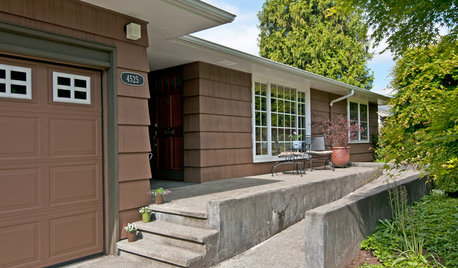Before making an offer...
schutjer
13 years ago
Related Stories

KITCHEN DESIGNSmall Luxuries: Wine Refrigerators Offer Handy Storage
No more tossing whites in the freezer at the last minute. Get the facts on wine coolers so you can just chill before guests arrive
Full Story
GARDENING GUIDESMake Sure You Read This Before Buying New Plants
Follow these 10 plant-selection tips to avoid buyer’s remorse
Full Story
HOUSEKEEPINGBefore You Roast Those Chestnuts, Make Sure You've Got a Clean Chimney
Here's how to ensure your chimney is safe for holiday gatherings by the fire
Full Story
KITCHEN COUNTERTOPSKitchen Counters: Quartzite Offers Strength and Beauty
Eye-catching patterns and a natural pedigree make durable quartzite a popular alternative to granite and marble
Full Story
KITCHEN DESIGNKitchen of the Week: Navy and Orange Offer Eclectic Chic in California
Daring color choices mixed with a newly opened layout and an artful backsplash make for personalized luxury in a San Francisco kitchen
Full Story
REMODELING GUIDESDouble-Hung Windows Offer Singular Traditional Style
They're efficient. They're visually appealing. They come in many materials and finishes. Is it any wonder double-hung windows are classics?
Full Story
TRAVEL BY DESIGN9 Vacation Farmsteads Offer a Taste of Country Life
Have a hankering for fresh air and even fresher food? Try a farmhouse, cabin or well-equipped tent for your next vacation
Full Story
HOUZZ TOURSMy Houzz: A Seattle Remodel Offers Accessibility
Access for legs and wheels was the priority in this Washington state home's renovation, but universal design doesn't mean less style
Full Story
YELLOWMustard Yellow Offers a Fresh Taste for Rooms
New shades and tones have sown the seeds of a mustard-yellow revival, and rooms everywhere are reaping the benefit
Full Story
TREESGreat Design Plant: Southern Live Oak Offers an Unbeatable Canopy
Keep it dense or prune it for more light. No matter how you grow Quercus virginiana, it’s a majestic addition to its native landscape
Full Story






OttawaGardener
schutjerOriginal Author
Related Professionals
Madison Heights Architects & Building Designers · Memphis Architects & Building Designers · Panama City Beach Architects & Building Designers · Riverside Architects & Building Designers · West Palm Beach Architects & Building Designers · Dunkirk General Contractors · Hanford General Contractors · Lake Forest Park General Contractors · Leominster General Contractors · Lincoln General Contractors · Monroe General Contractors · Phenix City General Contractors · Solon General Contractors · Walnut Park General Contractors · Fountain Hills Interior Designers & Decoratorsbadgergrrl
LoveInTheHouse
schutjerOriginal Author
jane__ny
chispa
maurenemm
susana_2006
lesterd
brickeyee
Carol_from_ny
fern76
totsuka
jane__ny
LoveInTheHouse